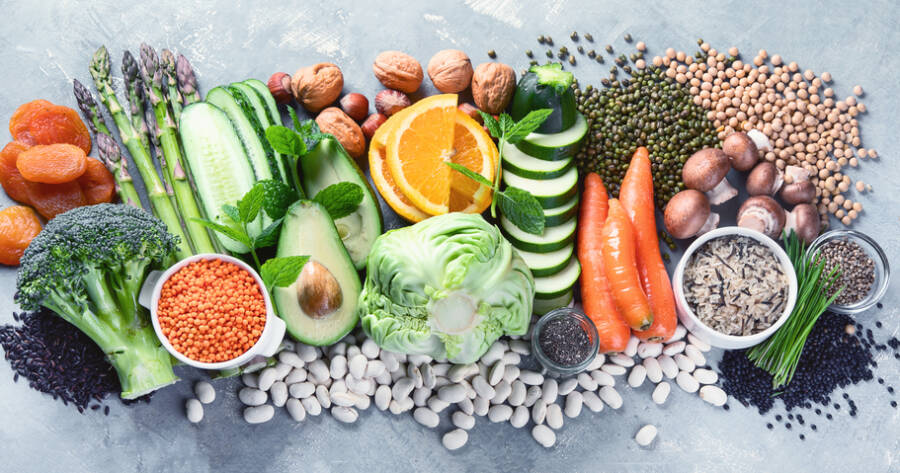Adopting a plant-based diet has become an increasingly popular lifestyle choice, drawing attention from nutritionists and food enthusiasts alike. This way of eating emphasizes whole, minimally processed foods derived from plants, including vegetables, fruits, whole grains, nuts, seeds, and legumes. While individual results may vary, many people exploring plant-based diets often consider the potential benefits, such as improved health markers and environmental impact.
Nutritional Benefits of Plant-Based Diets
Incorporating more plant-based foods into your diet can have various nutritional benefits, although results may depend on personal health profiles and lifestyle choices. Plant-based diets tend to be rich in essential nutrients, including fiber, vitamins, and minerals. These diets typically emphasize consuming whole foods that are dense in nutrients yet lower in calories compared to more processed options.
Fiber is abundant in plant-based diets and can aid in digestion and potentially support cardiovascular health. By focusing on foods like legumes, whole grains, fruits, and vegetables, individuals may meet their daily fiber requirements more easily. Moreover, plant-based diets may provide antioxidants and phytochemicals, compounds found in plants that might support cell health and reduce inflammation.
Protein, often a concern for those transitioning away from animal products, can be sourced from a variety of plant foods. Beans, lentils, tofu, tempeh, nuts, and seeds are all excellent protein-rich options. Individuals exploring plant-based diets may benefit from planning their meals to ensure they receive complete proteins by combining different plant foods.
Considerations for a Balanced Plant-Based Diet
While plant-based diets can offer numerous potential nutritional advantages, balance and variety are crucial. Those adopting this lifestyle should carefully plan to ensure all nutrient needs are met. A diverse intake of different plant foods can help provide a broad spectrum of amino acids, vitamins, and minerals.
Vitamin B12, iron, omega-3 fatty acids, and calcium are nutrients sometimes less abundant in plant-based diets, so individuals may consider fortified foods or supplements to bridge any gaps. For example, fortified plant milks and cereals can provide B12 and calcium, while flaxseeds, chia seeds, and walnuts can be sources of omega-3s.
Staying informed and possibly consulting with a healthcare professional or nutritionist can provide guidance specific to individual health goals and needs.
Delicious Plant-Based Recipes
Exploring plant-based eating can be a culinary adventure, with a variety of flavors and textures to enjoy. Here are a few simple recipes that highlight the richness of plant-based ingredients:
Quinoa and Black Bean Salad
Ingredients:
1 cup cooked quinoa
1 can black beans, rinsed and drained
1 red bell pepper, chopped
1 avocado, diced
Juice of 1 lime
2 tablespoons olive oil
Salt and pepper to taste
Fresh cilantro for garnish
Instructions:
- In a large bowl, combine quinoa, black beans, bell pepper, and avocado.
- Whisk together lime juice, olive oil, salt, and pepper. Pour over salad and toss gently.
- Garnish with cilantro before serving.
Creamy Tomato Basil Soup
Ingredients:
1 tablespoon olive oil
1 onion, chopped
2 cloves garlic, minced
2 cans crushed tomatoes
2 cups vegetable broth
1 cup coconut milk
1 teaspoon dried basil
Salt and pepper to taste
Instructions:
- In a pot, heat olive oil over medium heat and sauté onion and garlic until soft.
- Add tomatoes, vegetable broth, and basil. Simmer for 20 minutes.
- Stir in coconut milk, season with salt and pepper, and blend until smooth.
Chickpea and Sweet Potato Curry
Ingredients:
1 tablespoon coconut oil
1 onion, diced
2 cloves garlic, minced
1 tablespoon curry powder
1 can coconut milk
1 large sweet potato, peeled and diced
1 can chickpeas, rinsed and drained
Salt to taste
Instructions:
- Heat coconut oil in a large pan and sauté onion and garlic.
- Add curry powder, stirring for 1 minute.
- Add coconut milk, sweet potato, and chickpeas. Simmer until sweet potato is tender.
- Season with salt before serving.
Learn More Today!
While adopting a plant-based diet may provide numerous potential nutritional benefits, individual experiences can vary based on dietary choices and health conditions. By focusing on diverse, nutrient-rich foods, individuals might discover enhancements in their well-being and satisfaction from engaging with fresh, flavorful ingredients.
Consulting with healthcare professionals and adopting a balanced approach are advisable for anyone considering such a dietary change. Embracing a plant-based lifestyle can be both a rewarding and nutritious journey, offering a new appreciation for the power and versatility of plants.

